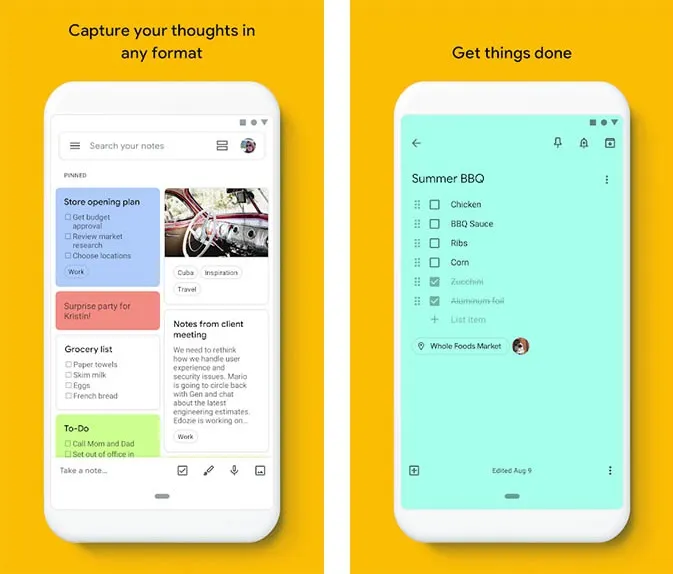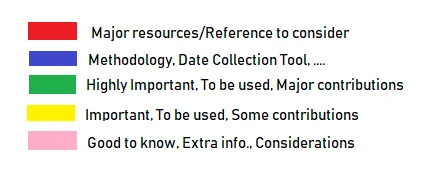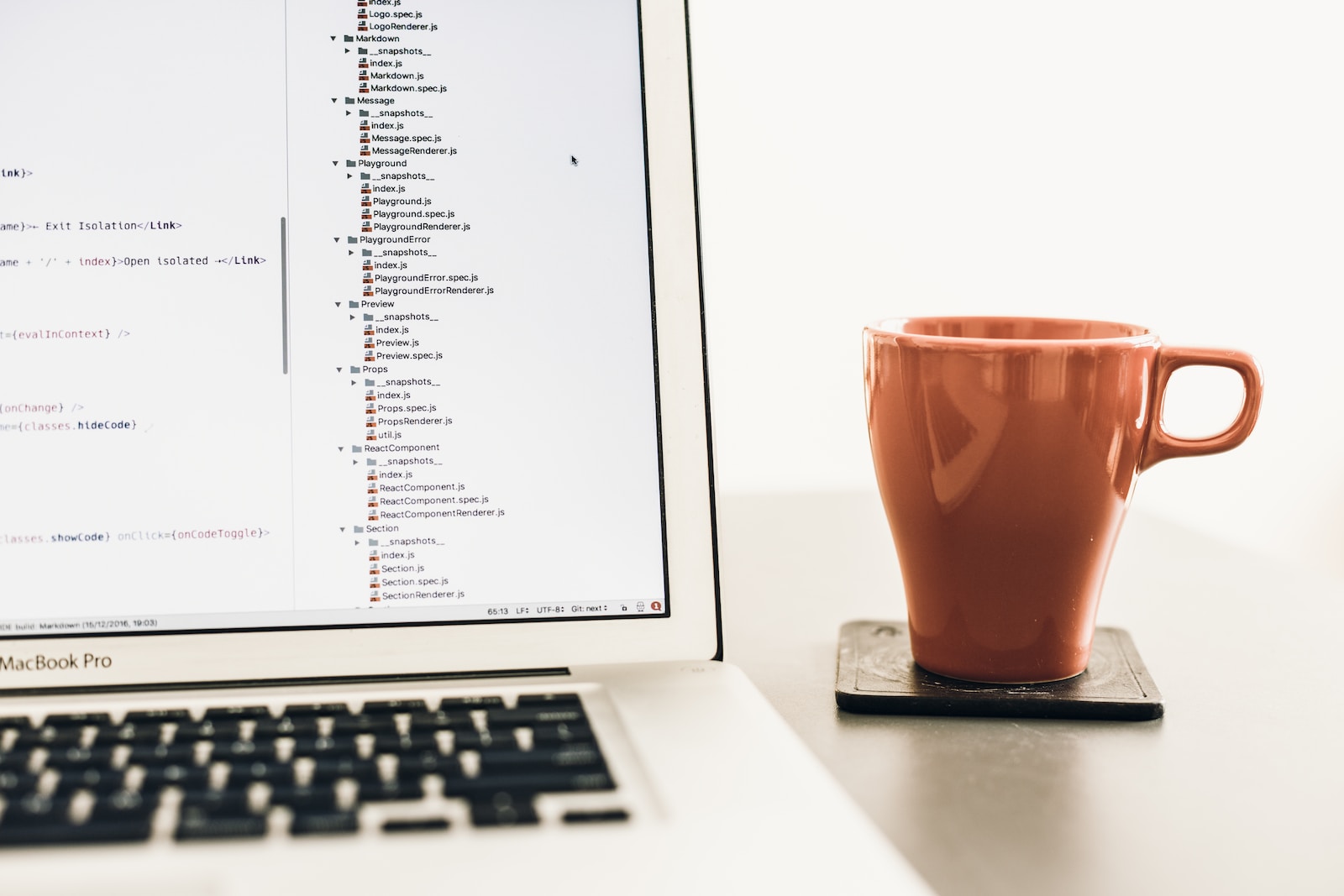Distractions are all around us. Sometimes, even with our best intentions to stay on task, we still find ourselves doing something else.
Personal plan executions are never 100% steady. Self-control plays a crucial part in executing plans while being conscious of our plans will result in being better at executing them.
Unlike many people, I believe in being hard on your self. Is not man’s life-long struggles, with the self? Educating it, letting it loose, taming it, getting it back on course. Last time you decided to attend a workshop, watch some motivating speech, learn about someone’s story, …. were not these all to ensure your self is on course or it is better faring on course?
Speaking from experience, a student’s life is a constant struggle for making sure one is on track, and doing what you are supposed to do. It has been 12 months that I am studying here in Australia as a Ph.D. student. I passed my candidature confirmation successfully two days ago. I thought of writing this piece to share some of the things I have been doing in the last 12 months that I think played a big part in my success.
Please know that I am not trying to patronize, or think of my self as successful in doing those. I do not think I have ever done any of those success/fully. The only thing that made a difference, I guess, was that I kept on trying. Maybe I did them less this week, and more the other, or maybe none on that particular week, but I tried and tried and tried.
Here are some of the things I have been doing to manage my self. I hope they will be of some use to you.
Check that Item off the List
I have been using Google Keep for more than 3 years now. It has proven to be absolutely necessary to keep my attention on what I do and should be doing every day. The good thing about Google Keep is that you can add to your list wherever/whenever you are. Take your phone out and add to the list, and it syncs right with your Keep on other devices. However, I do not think the tool is important. What is more important is that you use it, and making sure you benefit from using it. I am using Google Keep almost every day. I just take some minutes at the end of the day and make a list for tomorrow, or when I wake up, do my morning routines, then go to my study table and make a list for the day.

One thing that keeps me motivated in using daily checklists is checking items whenever done. Read that article? Check, Emailed my supervisor? Check, Wrote my 500 words? Check, Called my mom? Check, Did my prayer? Check, Did my morning shoulder and back exercises? Check, …. etc. In doing so, a feeling of accomplishment covers me when I see the items going off the list, which is very motivating. It makes me want to go to another task.
There are many other checklist tools available. You need to find one that works best for you. In the marketing business, it is advised to use tools that can grow with your business, and stick to it, and that is what I do. This will prevent you from spending all this time and effort learning how to use a new one.
Week/Daily Workout Routines
Taking care of your health is a must. Nothing, even your Ph.D. or your life project, is more important than your health. However, the modern-minded individual looks more into appearance. He is more exoteric than esoteric. Therefore, we need to make sure we do not fall into that. That you almost killed yourself with your workout today but ended up eating fast food for lunch! For me health is not just body, it is spirit, mind, and psychology too. And a balance must be kept.
One of the things I have been doing in the last year or so, of course with a lot of help from my wife, was eating healthy. Making sure we consume things that are healthy, and also we consume them in a balanced manner. I am very sure that this had a lot to do with my aptitude, high motivation, and positive attitude towards my studies and my work.
Going for a run or a walk, and shoulder and neck exercises were a regular thing in my daily routines. It has not been easy to get my self off of its comfort zone, but I have been trying. I think some workout routine is a must in a student’s life.
Spend Some Time off the Intensive Work
As days pass by and your intensive work does not end. You gradually lose interest in your work/studies. It happened to me, and it hit me hard. One thing that helped immensely was that I spend time doing things that take me completely off my work. Things that are not related to my Ph.D. at all. There are certain things I have found very useful doing.
- I read books that are outside my work. I recently changed my schedule to read a chapter/part every day. The condition is, that it must be something about other things in life. It can not be study/work-related.
- I watch movies.
- Unlike some, I do not put my Facebook off. Rather, I have decided not to check it during my studies.
- Weekend timeouts.
- Daily walks.
- I cook. The kitchen is the best place to forget about things.
- I love making (and drinking) coffee.
- I play football games on my iPad. That is the only game I like to play. Do not blame me.
- I talk to my family on the phone.
- I take coffee breaks.
Put Systems in Place
Just like for any business to succeed, it is imperative for it to have systems in place. For me, it is likewise in doing my work. In a doctoral student’s life, this includes systems for reading, writing, student-supervisor relationship, … etc. For each, set things to work together. Put some sort of mechanism by which parts come together to become whole.
Some of the things I do during my doctoral studies include;
Colour Code Readings
I use color coding for note-taking. When I read, I highlight different lines with different colors. Each color tells me a different thing. Red tells me that this reading is crucial, that I have to go back to it.

Blue tells me more about methodological considerations. Green contributes highly to my project as literature. Yellow is important but as important as secondary literature. So and so forth. I provided a screenshot, it could prove useful to you.
Report on Progress
Though I do that rarely, but it is very good to keep your supervisors updated on what and how you are doing with your work. Report on Progress is an email detailing my progress regarding every aspect of my project in the last month or 3 weeks. I write about my readings, writing processes, difficulties I face, ask if I need anything, … etc. I know there are regular meetings with supervisors, but the reports will ensure your supervisors are informed about your progress in writing, especially in cases where a supervisor misses a meeting.
Cut the Way Short
As you are cognitively engaged in your work, and suddenly there is something you need. A better wording in this sentence? An article? A synonym to that phrase? A definition for that concept? Another reading on the theory? How is the correct way to reference this? … etc. To make sure I do not spend time every time I need something like these, I spend that time once only. I do that by using shortcuts. Such as Bookmarking on my browser, Pinnings (for example, every time I need to open a guide book, I just do a right-click on the opened pdf file, and I open the guide book that is already pinned on the pdf reader software from the taskbar), blocking notifications from websites, and making my own customized tool using google sheet and doc.
Building Personal Connections with Your Project
Imagine your project as a living being, capable of making you feel and think. Then try for it to always make you feel good about it and yourself. And that can be achieved by dealing with your project as if it is your friend, and you would want to talk to it. As if it is a part of you, you would not want to be away from. This produces a sense in you that goes beyond owning the project. The feeling that no one else is going to do it for you if you do not because it’s yours. No, not that feeling.

Building connections with your project on the basis that your project lives, breathes, and feels just like a person, will create in you a sense that it is beyond feeling obligated to do a task. It is also called Anthropomorphism. Consequently, the very act of doing the task will be out of your love for the project, not obligations. You no longer feel that you own your project, but that you are friends with your project. Growing together, and moving forward together.
One effective way that I personally use for my doctoral research, is that I write ‘love letters’ to my Ph.D. The writing is not constant, but I write whenever I feel I need to talk to my Ph.D. project.
You may wonder, what is there to write about? I am already writing it. I ask, what is it in your relationship with your project that does not need to be talked about?! That new concept that made you read two other chapters in another book? That you stumbled on a line one of the theorists, in your field, stated? A new paper just came out that is directly related to your project but full of inspirations? A thought-provoking comment your supervisor had in your last meeting? … etc.
The least benefit of writing love letters to your Ph.D. is that you have someone to talk to about your days. Especially in these pandemic times when keeping up with your network is not a given thing.
In Conclusion
I would like to restate what I started with. That executing plans are never 100% steady. In fact, the period of keeping your self focused on one thing is a very short duration. Anyone who has spent one day in teaching understands this very well. I am talking about attention span. Therefore, I suggest we focus on our attempts, keep conscious about our plans, and the reasons why we have them.
Patience, perseverance, and consciousness (that we have a plan, and knowing what distracts us) are what it takes to keep our selves in control.
____
This post first appeared on Medium on Jun 14, 2020.
